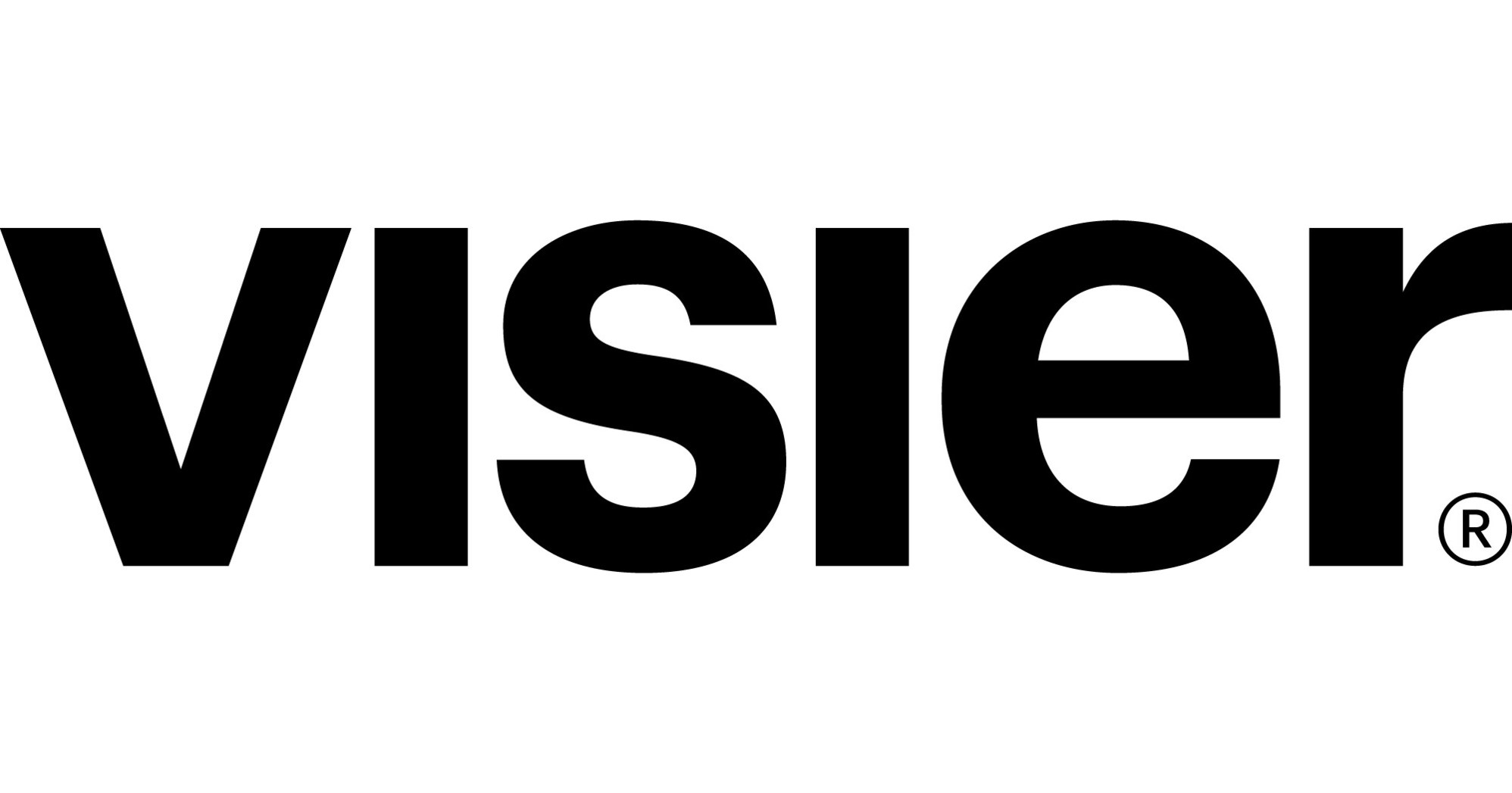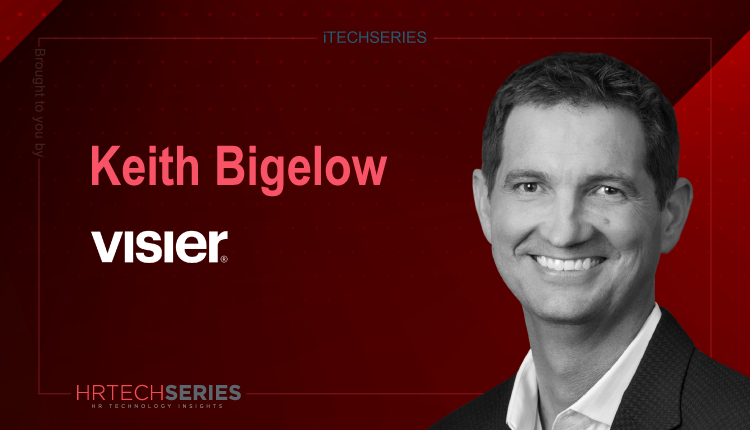Keith Bigelow, Chief Product Officer at Visier talks about the growing use of people analytics and the state of modern HRTech in this quick catch up:
Hi Keith, tell us about yourself and your journey in the HRTech space so far.
For most of my career, I have been an analytics generalist, serving every department within an organization. Approximately eight years ago, I was looking to converge my personal desire of ‘doing good for people’ with my professional work. I moved to healthcare AI. Healthcare offers you an amazing purpose: your job, especially in AI, is to save and improve lives. Our mission was to develop a platform and an ecosystem for healthcare AI algorithms, which we could deploy to our modalities (X-Ray, MR, etc.), so that patients and their care teams would receive real-time alerts of detected conditions. As much as I was gratified by our success as the #1 vendor of FDA approved algorithms, after several years I found that I missed the velocity and pace of innovation in enterprise software. So, when the opportunity arose to move into the HR tech space, I jumped at the chance because it allowed me to continue work that benefited people. I led the team that built Workday’s first people analytics product in 2020, and now I lead the product organization at Visier, the world’s leader in people analytics and workforce solutions for people-powered business, where we are committed to putting the right insights into the right hands at the right time to prove that people impact is business impact.
How are you seeing HR Technology evolve today; what are some of the top HRtech trends and features today that you feel are changing the game for HR teams as well as employees?
Three trends we’re observing are: (1) the need for people analytics to reach beyond the HR team; (2) AI’s emergence as a means to improve manager effectiveness; (3) delivering people analytics to every employee in the enterprise.
We’re in a macro-economic period that demands companies materially increase productivity, and engaging every employee in the workforce to contribute to that improvement is now imperative. However, the historical benefit derived from HR tech has been heavily weighted towards HR teams themselves — helping them become more efficient, identifying ways to measure and manage resources, reducing people costs for the organization, and more recently engaging the employee base via surveys. But the market needs us all in HR tech to reach well beyond the HR team and take responsibility for the entire organization. The unavoidable trend I see is the evolution of HR to be more like finance, bringing the same benefits of financial capital management to human capital, particularly through the evolution of people analytics and AI to help drive productivity and effectiveness from managers, teams and employees.
As innovation in HR tech evolves, I see analytics and AI making every employee better, providing real-time coaching for every manager in ways that aren’t possible to deliver at scale today, for example. Imagine AI prompting managers to adapt their behavior to drive corporate performance. I expect a near-future use case where we’ll see a manager receiving a nudge that they should engage with specific employees after a resignation to avoid contagion based upon the departed employee’s closest work relationships.
Highly innovative HR teams are already starting the journey to improve corporate performance by deploying people analytics to every employee. We have an enterprise customer in financial services that brings people analytics to every employee in the organization. All the data surrounding learning, compliance, promotion and pay, and potential career paths is delivered to the employees directly to help them perform their best. At most companies, managers don’t always have the time to review that with every employee, but analytics does, and I think it’s interesting how we can further unveil the path of opportunity through AI and unlock a great career for everyone.
Recommended : Untraditional Ways To Discover Tech Talent And Promising Software Projects
With AI advancements impacting almost every area of business, we’d love your thoughts on how it’s especially enabling HR teams to recalibrate HR experiences across human resources functions (hiring, employee engagement, people insights, etc)
AI is most effective where we find repetitive mundane work, inefficiencies or scarcity. For instance, talent acquisition is one area that is primed for AI. We’ve already seen the impact it has in the screening of applicants, and that will become further improved with having AI take on the scheduling of interviews and responding to applicants, hopefully shortening the time it takes to hire.
Another area of scarcity within the HR function is the HR business partner (HRBP). Their role is not only to be a business leader, but also to be subject matter experts on how to grow the organization to its ideal state. However, many of these HRBP leaders are asked to be subject matter experts for multiple functions, despite not being given the opportunity or the ability to specialize.
The people analytics team’s core customers today are the HRBPs, delivering data specific to an organization’s workforce, like the cost of labor and where specific skills exist within the organization. The role of the people analyst going forward is likely to be one where they fine-tune the AI to provide the subject matter expertise the company needs, freeing up the time for HRBPs to be strategic advisors. I think this is becoming even more important amid the adoption of AI more generally as it will land with HRBPs to help reimagine the organization, identify what roles won’t be needed going forward, what roles will need to be upskilled, and what roles will need to be added.
Generative AI will also allow more self-service access to people analytics data for business leaders and their managers, driving efficiencies and freeing up time.
What are the biggest HR Tech and AI myths you’d like to bust in this conversation?
1. Myth: you can’t safely deploy Generative AI with people data.
Fact: There is a secure way to introduce AI into HR tech and we have proof having deployed a digital GAI assistant for people analytics to millions of users having passed stringent infosec audits. However, designing a compliant architecture that passes these types of audits is non-trivial, so while the myth is incorrect, achieving this outcome is not an easy task.
2. Myth: All GAI solutions result in problematic answers to questions and hallucinations.
Fact: When poorly implemented, GAI absolutely suffers from material hallucinations. We have trained our digital assistant, Vee, on the metadata and data model of our Blueprint, shared by more than 50,000 customers. Because Vee can only ask questions of this canonical representation of people data, it cannot answer questions about the weather, the presidential election, etc. Vee understands when the user is asking about a member of a dimension and understands synonyms in use at the company for metric names like “attrition.”
3. Myth: GenAI / LLMs are a passing fad.
Fact: This newest evolution of generative AI is based upon Google’s Transformer paper from 2017, it’s already 7 years old! Indeed, GenAI is simply the latest iteration of deep learning that emerged in the early 2010s. Of course, the early years of GAI will be focused on improving and learning – there will be stumbles, but to assume GAI is a fad is to assume deep learning is a fad. No one is using old school ML techniques anymore, and I truly believe those that feel it is a fad will be left behind.
Can you talk about some of the most interesting ways in which you’ve seen global B2B brands use AI to initiate better HR insights and experiences across their organizations: what key takeaways would you share from those observations?
We recently hosted Outsmart, our annual customer conference, where several of our customers presented the innovation they are driving internally to their organizations thanks to AI. We are fortunate to collaborate with some of the biggest disruptors in the HR discipline who are driving AI transformation and democratizing access to the insights and data.
- We have a global systems integrator customer who uses our generative AI digital assistant Vee and is now putting that technology into the hands of all their HR leadership to empower self-service.
- Another customer, one of the largest private healthcare systems in the US, is using Vee as a bridge between questioning and understanding. They see it as cultivating engagement for their users and enhancing data comprehension by removing the friction to critical insights.
- A Visier customer in manufacturing has embraced GAI as their future. They see it as a technology that will allow the less tech-savvy within their organization to access people insights. They see huge benefits in providing frontline managers with the opportunity to ask a simple question in Microsoft Teams (via our Vee integration) about their turnover and get back an immediate answer instead of needing to funnel all those requests through the people analytics team or HRBPs. Democratization of employee insights is their key objective.
I believe that the only ones who should fear AI are those who choose not to embrace it. I see many of our customers as champions, leading the adoption of the technology within their organizations to drive greater efficiencies and superior corporate performance.
Latest HRtech Interview Insights : HRTech Interview With Andrew Considine, Chief Technology Officer At Helios
[To share your insights with us, please write to psen@itechseries.com ]
Keith Bigelow, is Chief Product Officer, Visier

Visier is the people impact platform that puts the right insights in the right hands, at the right time, throughout the business.

